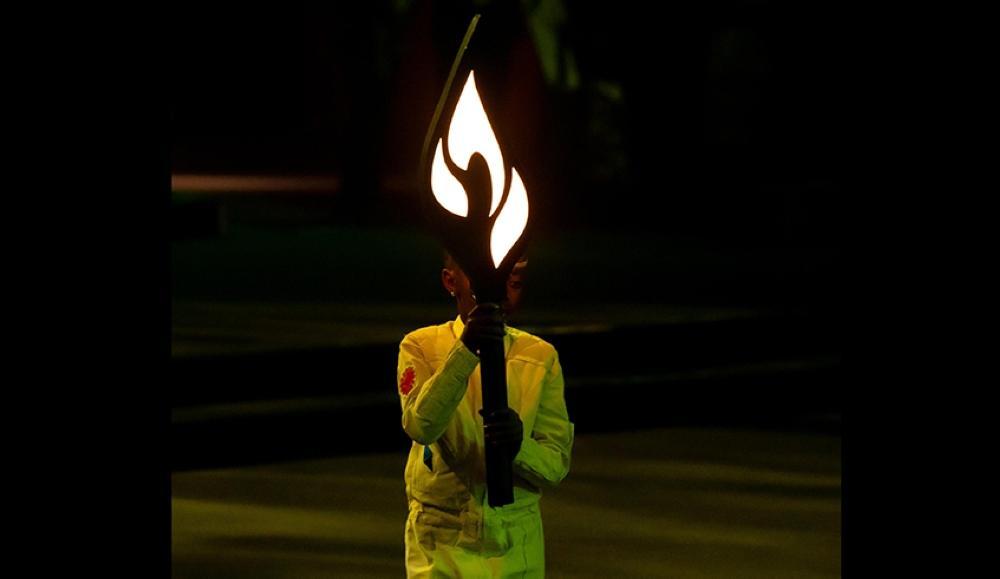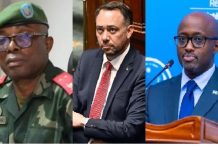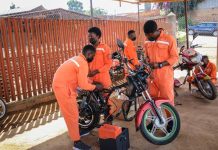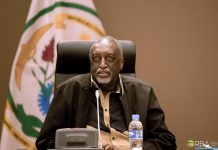Edwige Isimbi
Africa-Press – Rwanda. As Rwanda solemnly commemorates the 1994 genocide against the Tutsi, a routinary, annoying chorus re-emerges again: genocide denial.
The deniers fall mainly into two camps: powerful nations and those desperately trying to rewrite Rwanda’s history. It is no coincidence that their voices make the loudest noise during this period, to drown with lies the testimonies of those who lived through a hundred days of unimaginable horror.
Unsurprisingly, some of the deniers agitating themselves the most during this period, are the “genocidaires’ children” – the biological or ideological descendants of those who orchestrated and executed the 1994 genocide against the Tutsi. These ones turn to social media, spreading hate and revisionist narratives, minimizing the scale of the Genocide against Tutsis, distorting history, and often accusing the victims of being the culprits.
A clear example is that of Habyarimana’s son and his likes, from Jambo asbl, who are committed to a twisted version of history by pushing a false narrative that the plane crash was the trigger for the 1994 Genocide against the Tutsis, to cover up the planning, organization, and execution of the systematic massacre by their parents.
However, no one of them has ever explained how the shooting of the plane “triggers” the killing of even innocent newborns, barely a week old or how innocent civilians miles and miles away from the capital city had to be victims too.
Like the proverbial elephant, the internet has an infallible memory, one that never forgets. It has all the facts that the Genocide against Tutsis was planned, a “final solution” against the mere existence of the Tutsi, and not triggered by the plane crash.
Take as an example the infamous speech of Dr. Léon Mugesera, convicted for inciting the genocide, who back in 1992, without hesitation, sensitised the population to exterminate the Tutsis “gutsemba” and ‘throw their bodies into the Nyabarongo river that will take them back to Ethiopia’.
Most of those who were there or did a quick search on the internet still remember Kantano’s continuous repetition on RTLM radio that “akantu” (something) was being prepared for April 1994, which, of course, was not a coincidence. He knew what was being planned.
Again, back in July 1992, the then-head of the military intelligence service, Colonel Nsengiyumva Anatole, sent a confidential note to Habyarimana, indicating that him and his ideological kin, did not support the implementation of the Arusha Accords protocol relating to the merger of the armies.
Nsengiyumva stated that if this protocol was implemented, the Rwandan army would be ready to: “exterminate the Tutsi […] and the other authorities who were responsible for these problems. […] It will take revenge against senior officers…”
On the same note, he warned President Habyarimana about what could happen to him: “If this president does not defend his citizens, if he does not retract quickly, […] he will find himself alone. […] If the head of state does not assume his responsibilities to defend the country, he only has to resign. Otherwise, others will do it for him.”
Despite all these established facts and many others, some foreign leaders who failed Rwanda in its darkest times have also taken a permanent seat at the table of denialists. Consumed by guilt for their inaction during the 1994 genocide against Tutsi, they try to erase this shameful chapter of their lives.
They cannot fathom how Rwanda could rise from the ashes without depending on their help, so they decided to deny trying to burn us to the ground in the first place.
These deniers claim the Genocide against Tutsis was exaggerated, all sides suffered equally, or that the plane crash triggered it.
These are all blatant lies. The thorough planning, the training of Interahamwe, the hateful media inciting violence, the hate speeches by those who were high-ranking government/military officials at the time, etc. – all constitute indisputable evidence of carefully planned genocide, rather than spontaneous violence.
Social media, unfortunately, still provides a megaphone for these misleading narratives. But as President Kagame said during Kwibuka 30, “Today, it is all Rwandans who have conquered fear. Nothing can be worse than what we have already experienced. This is a nation of 14 million people, who are ready to confront any attempt to take us backward.”
The revisionist posts may trend but can’t erase the truth, for the latter is not a matter of popularity but of factuality. The meticulous testimonies of survivors will never be silenced. Rwanda was rebuilt, without the “contribution” of these deniers who clearly miss the dark era, where the ruling system was a hateful, divisive status quo.
In fact, Rwanda was rebuilt solely through the firm will of patriotic Rwandans.
Denial is not just an insult to the victims, it’s a dangerous attempt to pave the way for future atrocities. Nothing will stop Rwandans from remembering that over 1,000,000 lives were cut short.
Rwandans and allies must use this commemoration to amplify the truth, share stories of survivors, educate others about the genocide’s planning and execution, and call out denial wherever it is seen.
This year, let our commemoration be a constant reminder of the darkness we emerged from, and where we draw strength to build a better Rwanda and fight genocide denial.
We shall never allow anyone to rewrite our history, uphold nonexistent divisions, and deny genocide survivors the decency of peaceful commemoration. No lies tweeted, blogged, published, or otherwise documented shall deviate us from our course.
Twibuke, Twiyubaka.
Source: The New Times
For More News And Analysis About Rwanda Follow Africa-Press






